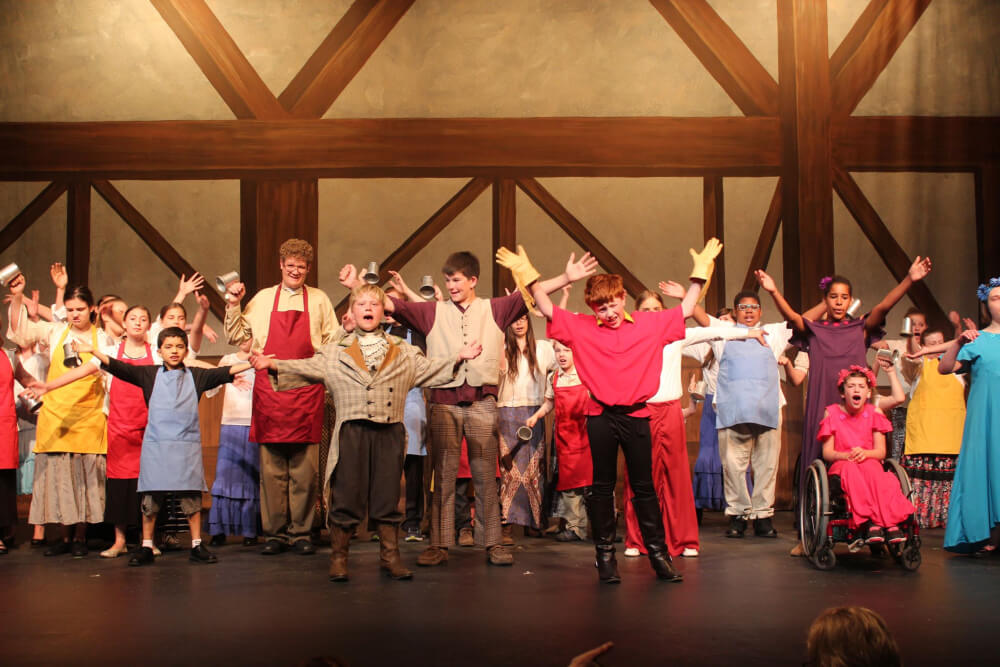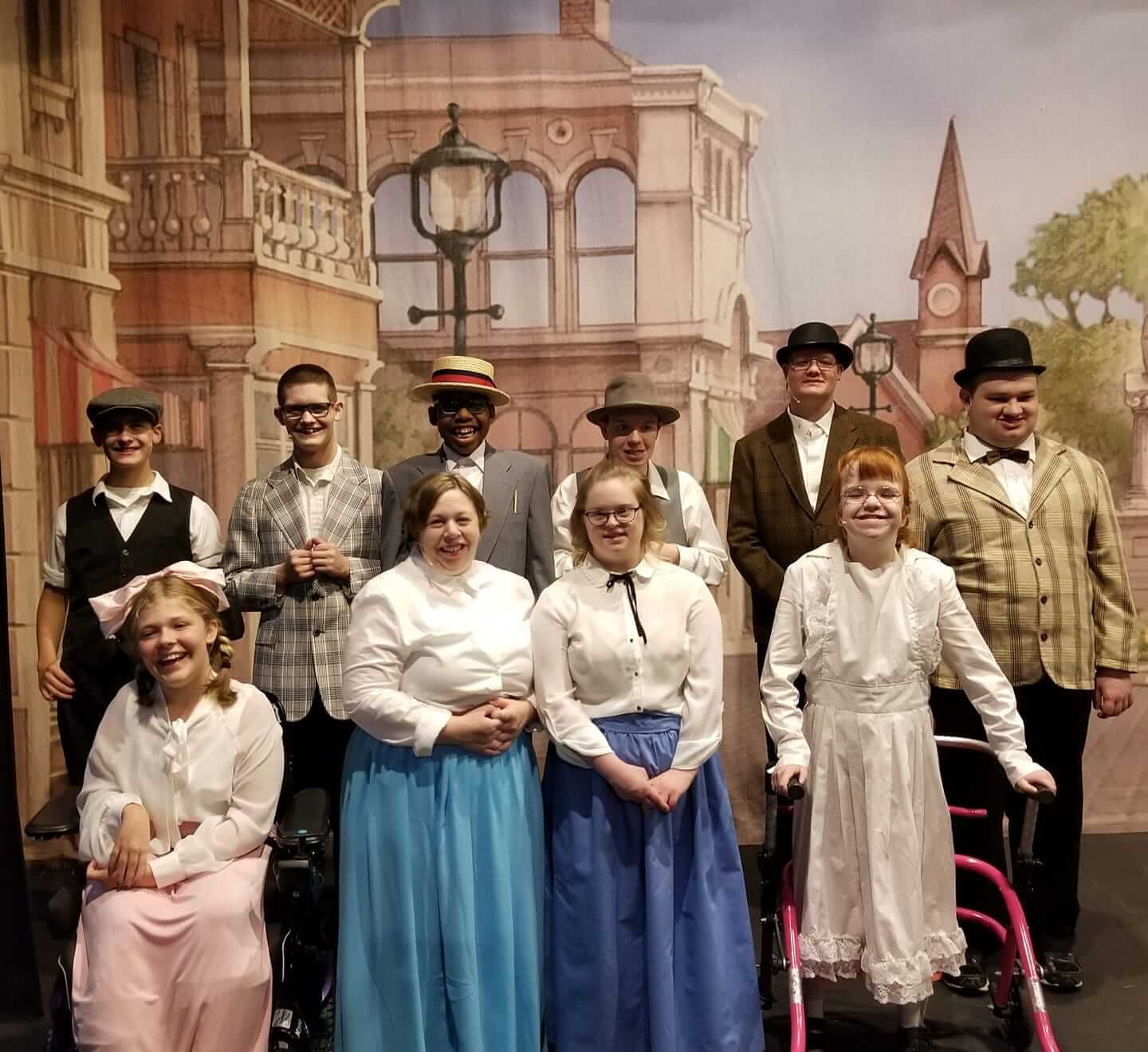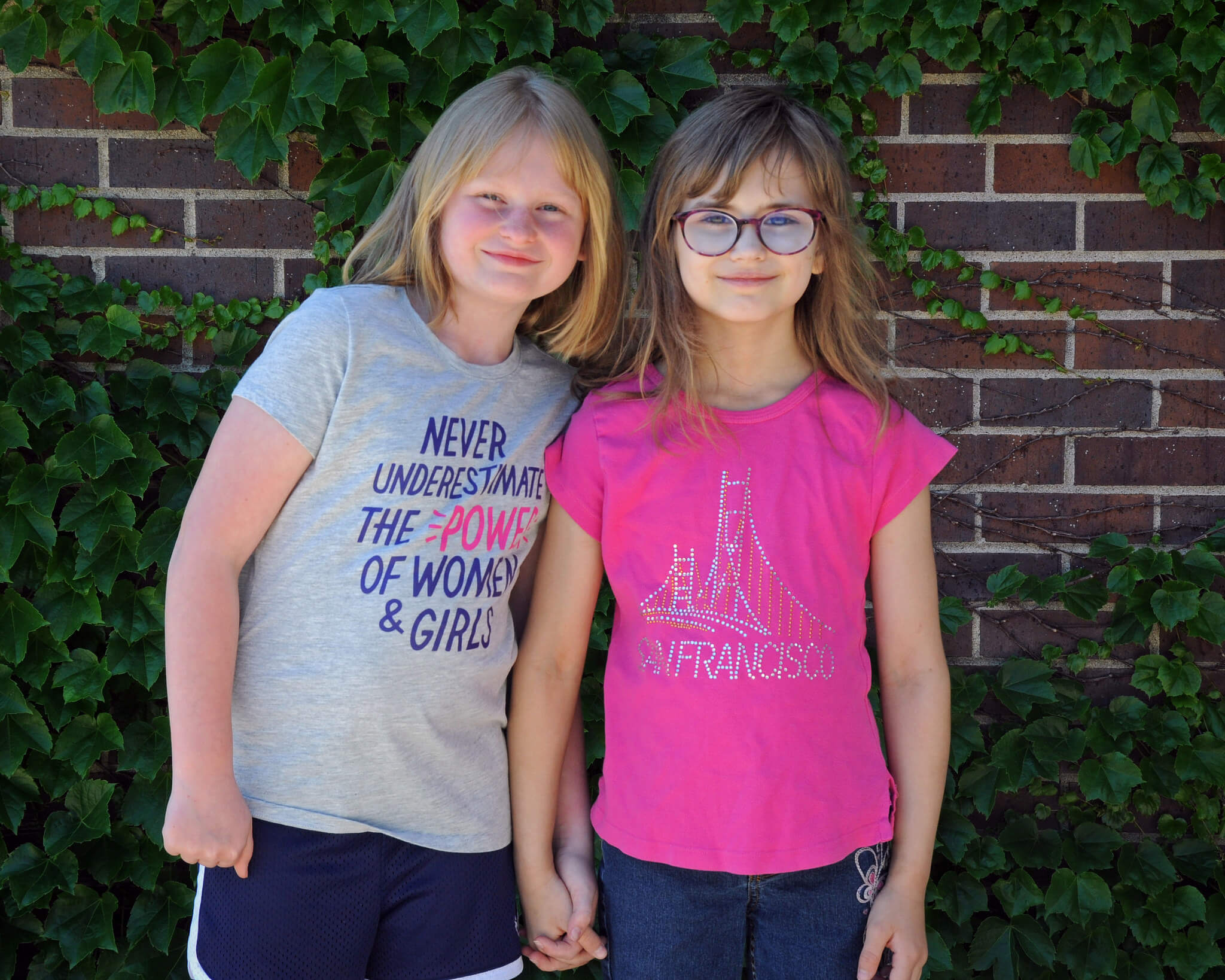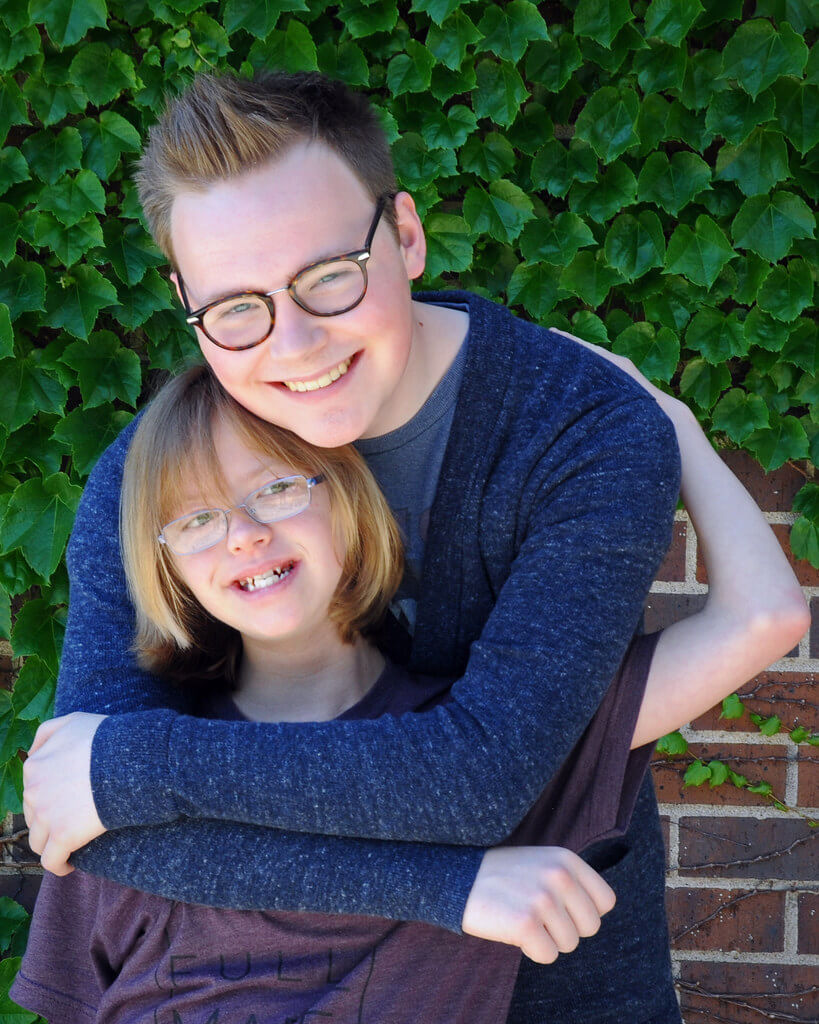I Don’t Have Children, I Have Penguins

Last year, I felt more worried than usual that our program numbers were going to drop. I’m a choreographer for a theatre program for kids with disabilities who are partnered by peer mentors, a unique program called the Penguin Project.
We’d been running our Penguin chapter for 4 years, and I knew the day would come when Artists and Mentors who had been with us from the beginning would start to move on, to jobs or high school activities or dance or sports.
I was preparing myself for it.
Seeking Respite Care
I joined a Facebook group for families in my community who have children with special needs, and I started reading the posts. A thread from a parent whose status was “feeling defeated” caught my eye.
She was seeking respite care for her special needs child and was being refused due to her child’s behavior. Again.
Several other parents made comments that they too have never had respite care for the same reasons. One mentioned wishing she could form a network of special needs parents to rely on because they “get it”, but leaning on parents who are as stressed out as she is feels selfish, and then she said the thing that broke my heart.
“Our communities hardly understand so they don’t want to help.”
When Dr. Andy Morgan of Peoria, Illinois met our Penguin team in Lincoln, Nebraska for the first time to help us launch our first information meeting, he emphasized how isolated children with disabilities and their families feel.
Their children don’t get phone calls.
They often can’t go to gatherings because other children’s homes can’t accommodate a wheelchair, or they may not behave in a way that the host will consider appropriate, or their child needs a parent present, or they aren’t invited.
Their kids may have had bad experiences with bullying at school or in other activities.
The Penguin Project
When he taught me the dance movements to the Penguin Project theme song, the gLee version of Journey’s “Don’t Stop Believin’”, I knew I had to do my best to emulate his energy and talent for working with young people. You have to look in their eyes and “get in their faces”, he said.
Match each Artist with the right partner, the right Mentor, and they’ll make a connection. Don’t oversimplify the movements, give them a challenge, they’ll meet you there every time. Magic will happen. He was right.

There are now 28 chapters in 15 states.
I sat for a few long minutes thinking about how best to respond to that parent’s post. Gently, I thought, and with great care. I’m not a mom.
Before the Penguin Project, I had no experience working with children with disabilities. So often parents have to fiercely advocate for their children’s needs. It’s apparent that there rarely enough resources.
I also don’t want to make false promises.
Our program has a no-tolerance policy for bullying, and of course we have procedures we must follow to keep everyone safe, organized and have a good experience. We spend about 5 months building up to each performance run.
It can be both exhausting and exhilarating.
Opportunity and Support
Dr. Andy’s words always come back to me whenever I need encouragement. “Children with disabilities have an incredible amount of talent. All they need is opportunity and support.”
So I started typing, introducing myself, giving some details about our upcoming info meeting, and closed it by saying that I just wanted her to know that there are people working to make our communities more understanding, inclusive and accepting.

I know it isn’t the same as respite care, but our stage is a place where kids of all abilities can shine, have fun, and more importantly they will be among friends and their peers. We often refer to this program at our Playhouse as “a social change masquerading as a theatre production”.
I read my post several times, took a deep breath and hit enter. I waited, desperately hoping that I hadn’t sounded trite.
There were several comments to my post, and even better there were private messages.
“Can my child still be included even if he is nonverbal?” Yes!
“My daughter sometimes says socially inappropriate things.” We all do, it’s part of learning, and we are prepared to help with challenging behaviors. Two or more of our Directors are trained and will develop behavior strategies if needed. Our other Directors teach them the show, and our staff works together and meets and emails constantly.
“My child isn’t mobile and uses a power wheelchair.” Kids of all abilities can participate. If you think your teen would benefit from being with peers or would enjoy the music, or wants to be in a play, try it.
“I don’t know whether my kid can do this.” I do. Just give them a chance to try.
36 new people attended our info meetings for The Music Man Jr.
Mentors Who Make a Difference
Our cast of 65 was the largest we’ve had to date. I do not take credit for this. It is our Mentors who make this program the wonderful experience that it is. Some of them are siblings of our Artists, but most don’t partner their own sibling by mutual agreement.
They’d rather make new friends and work with someone new. Some form partnerships that continue over multiple years.

A majority of Mentors are also doing a play for the first time alongside their Artists, learning stage directions and how to memorize lines and handle props. The Artist (the youth with special needs) plays the role. The Mentor stands a foot or two upstage of the artist, like a shadow, to quietly prompt only if needed. The Mentors join the Artists in ensemble singing and dancing.
Next year we’re off to see the Wizard. You know the one. Just follow the yellow brick road.
#ImThankfulForYou, my Penguin Team, and the Playhouse we love, for giving me a place to belong. For creating a place where no one is out of place.
To Morrie, Lily, Claire, Brooke, Kerry, Rachele, Don, Janice, Shannon, Christine, tech crew and all of our Penguin Project Mentors and Artists and their families. I learn more from you every year.
You are the light of my life and the stars in my night sky. And to Dr. Andy, for showing me how it’s done. And to my Mom and Dad, who supported my move to Nebraska and understand why I stay to do this.
Thank you, Penguins.
Written by, Rachel Danay
To learn more about the Penguin Project (suggested ages 10-22) or how to start a chapter in your own community, please visit www.penguinproject.org
Rachel is the Director of Choreography Focus for the Penguin Project at Lincoln Community Playhouse. She is the Assistant to the Dean for the Hixson-Lied College of Fine and Performing Arts at the University of Nebraska-Lincoln, and teaches dance at a local YMCA. She shares her home with her cockapoo Pippin and her cat Dolly, and is originally from northeast Wisconsin. Her short video from TEDxLincoln 2017 about the Mentors in the Penguin Project can be viewed here:
(Editor’s Note: This article was provided by Rachel Danay and is part of Cooper’s, ‘I’m Thankful For You’ Campaign.)
You can still nominate the doctors, therapists, teachers, friends and family that make a difference in your special needs world. Click HERE to learn how!
Finding Cooper’s Voice is a safe, humorous, caring and honest place where you can celebrate the unique challenges of parenting a special needs child. Because you’re never alone in the struggles you face. And once you find your people, your allies, your village….all the challenges and struggles will seem just a little bit easier. Welcome to our journey. You can also follow us on Facebook and subscribe to our newsletter.

